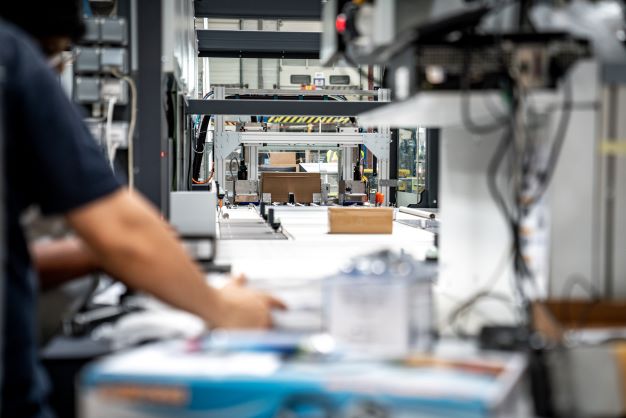In its anniversary year, ORBIS Europe, an international manufacturer of reusable transport packaging, continued its growth path in the European market.
“With a strong demand for durable, innovative and sustainable solutions in the market, our transport packaging solutions really hit the mark,” says Jürgen Krahé Senior Commercial Director EMEA. “Green logistics is more important than ever. Together with our customers, we continue our sustainability journey.”
ORBIS is part of Menasha Corporation, family-owned since 1849. In 2021, ORBIS Corporation celebrated its 25th anniversary in reusable packaging. ORBIS has supported European customers since 2002 and opened its ORBIS Europe in Cologne, Germany five years ago. Today it successfully represents the international corporation in the EMEA region.
ORBIS engineers and manufactures durable and sustainable transport packaging. The packaging solutions are made from high percentages of recycled plastics and 100% of ORBIS’ core products are recyclable at end of life. Following a circular economy approach, ORBIS creates a nearly closed raw material cycle. With reusable and recyclable packaging, companies can build more sustainable supply chains and move their product faster, safer and more cost-effectively.
ORBIS’ customers are medium-sized to large global organisations from different industries: from industrial manufacturing (like automotive) to retail (like food & beverage).
In order to ensure the same high quality standards at all locations in all countries, ORBIS Europe has successfully completed the ISO9001 certification process in 2021.
Added to that, ORBIS Europe extended the UN-certification for its dangerous goods container IonPak: These foldable large containers (FLCs) are now certified to transport larger batteries with a maximum gross weight of 915kg in accordance with UN50H.
“The demand for lithium-ion-battery transportation will continue to increase. With the IonPak, we can offer durable packaging solutions that are optimised to safely transport dangerous goods, such as battery cells, modules and smaller battery packs,” says Christian Hemming, Technical Director.
For ORBIS, innovation is key and starts right at the manufacturing process: Using a low-pressure injection moulding process to manufacture large transport packaging is unique in Europe. By foaming plastics and additives, the products are particularly durable and robust.
To strengthen its ability to innovate, ORBIS operates an innovation centre in the US. Krahé says: “As an international manufacturer, we are able to optimise intercontinental supply chains. After the introduction of PlastiCorr as a reusable alternative to fibre corrugated boxes for European retail supply chains last year, we continue to broaden our product portfolio in 2022 – to offer our customers additional alternatives for more sustainable supply chains.”
In 2022, ORBIS will participate amongst others in the following events:
- Automotive Logistics & Supply Chain Europe, May 2nd-4th in Munich
- The Battery Show Europe, July 12th-14th in Stuttgart
- Battery Experts Forum, June 28th-30th in Frankfurt
- FachPack, September 27th-29th in Nürnberg






